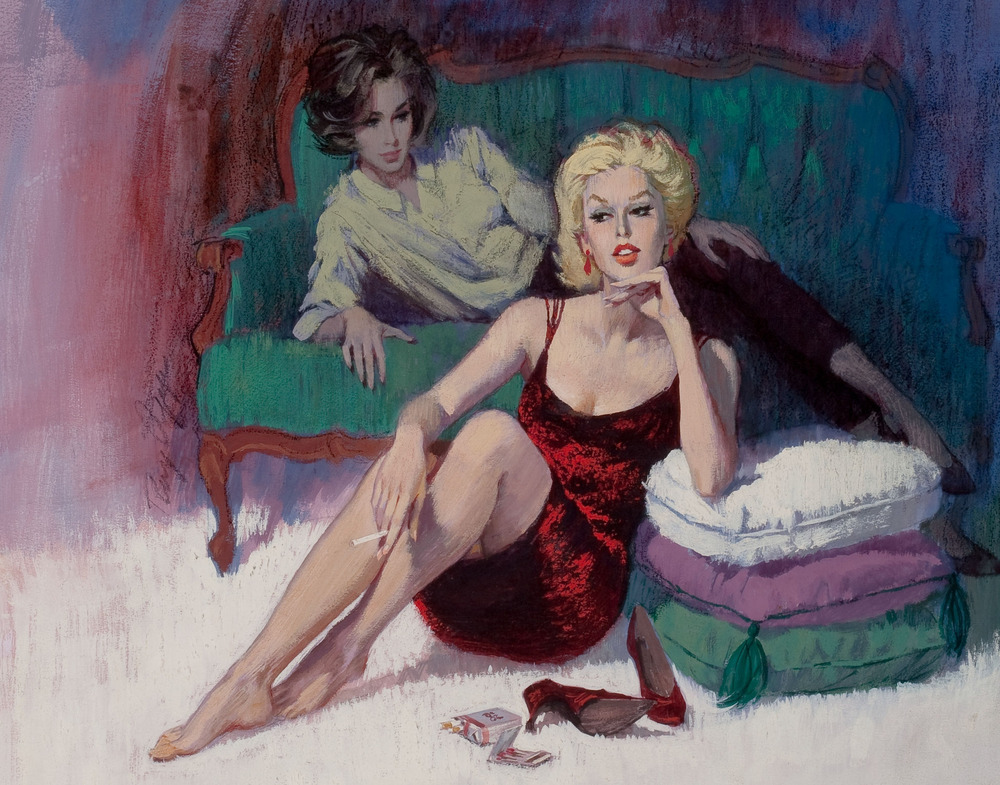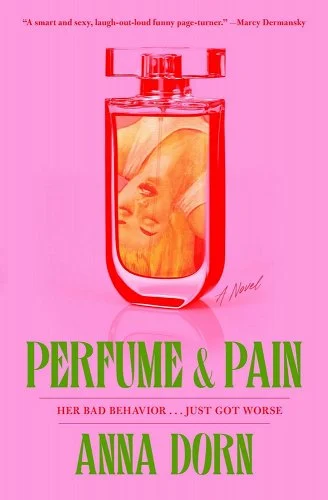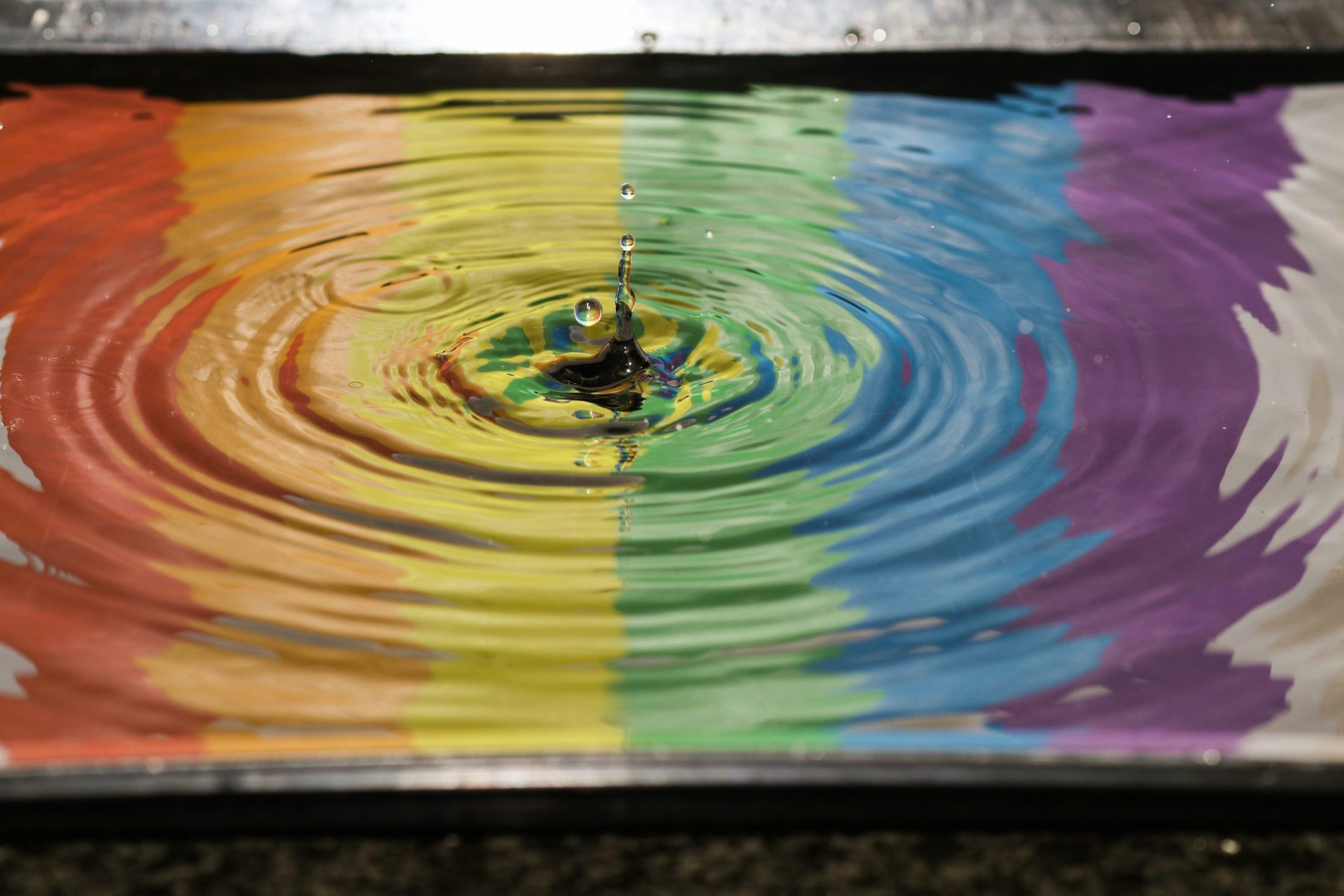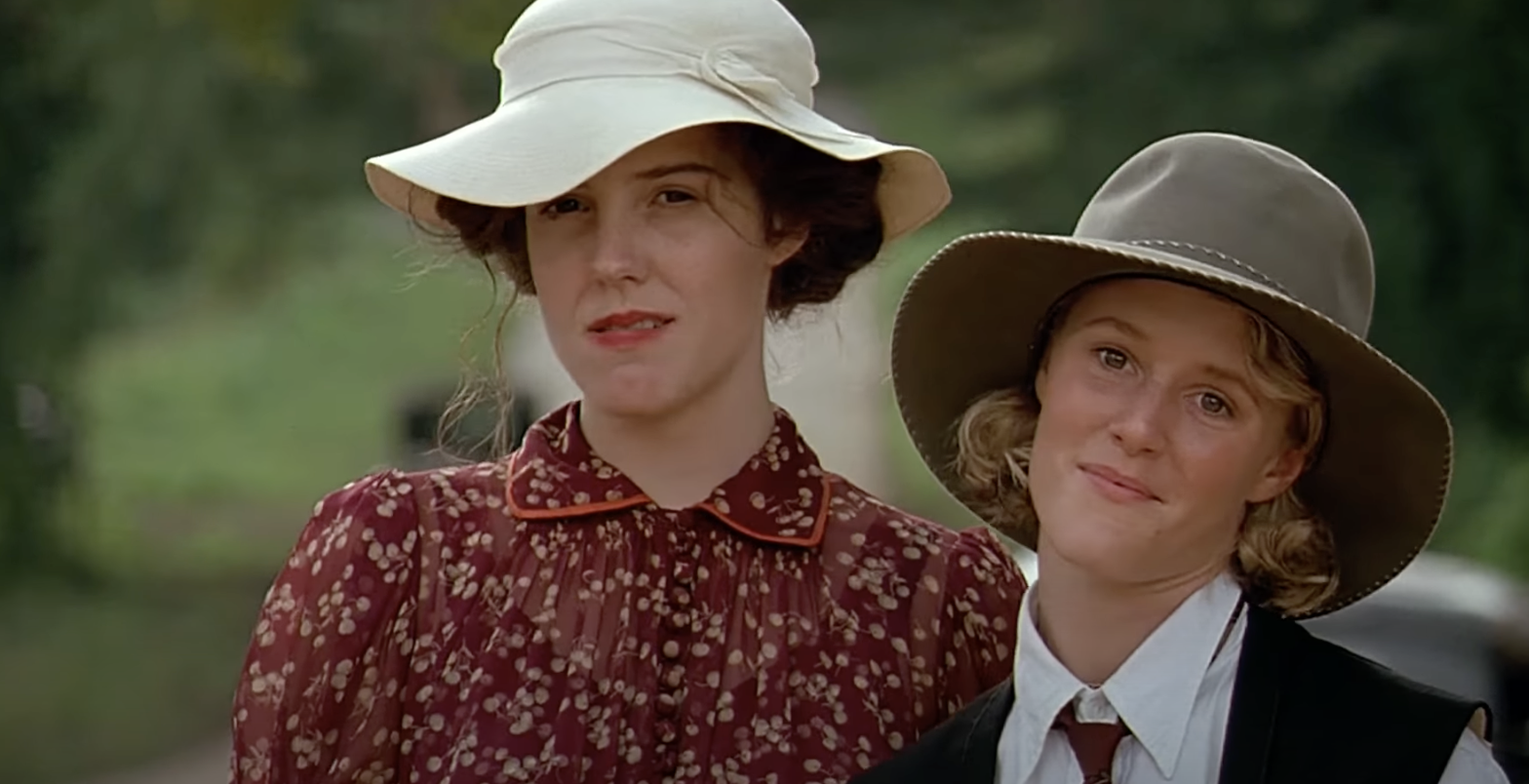interviews
Anna Dorn Thinks Patricia Highsmith Would Love Lana Del Rey
"Perfume & Pain" is an ode to lesbian pulp fiction that reveals the transformative and destructive nature of love

Anna Dorn is an author who I will automatically read anything she writes, no matter what it’s about. I love her sense of humor, and how her novels are always such delicious fun. If you find yourself in a reading slump (we all get them!) and need a book to remind you how entertaining reading can be, Anna Dorn’s got you covered.
Her latest novel, Perfume & Pain, features Astrid Dahl, a lesbian novelist who has recently been canceled for a comment she made at a book event that was caught on video and went viral. She’s struggling to write—so much so she rejoins a Zoom group she co-founded, though it’s no longer called Lez Brat Pack, and is now led by a man. That’s where she meets Ivy, an attractive woman who piques her interest. Meanwhile, she can’t stand her new neighbor Penelope. And then there’s Kat Gold, a celebrity producer who wants to work with her. All this pressure has Astrid going back to a cocktail of substances she calls the Patricia Highsmith—something her agent has implored her to stop using because it’s been responsible for her most destructive behavior.
Perfume & Pain is a smart, hilarious romp about a woman trying to break up with her bad coping mechanisms. It’s sexy and full of Anna Dorn’s trademark wit, dealing with cancel culture, industry pressures, and millennial lesbian dating. It’s such a pleasure to read, breezy without being brainless, that I tore through it quickly, dying to know what happened to Astrid and the mess she was making of her life.
Anna and I spoke about her last novel, Exalted, so it was fun to connect again and discuss Perfume & Pain.
Rachel León: Based on the premise I didn’t expect any mention of astrology in this novel, so I was delighted to get a few of the characters’ sun signs. But we never learn Penelope’s. I’m dying to know if you made an off-page decision about her sign.
Anna Dorn: I wasn’t expecting astrology in the novel either! I vowed after I published Exalted that I’d never mention my characters’ astrological signs again. And I wrote an entire novel where I didn’t. But then I ended up shelving that novel. And then I wrote a new novel, in which I mentioned the main characters’ signs on like… the first page. I kept trying to change it, but it just worked with their toxic flirtation. I purposely did not include Penelope’s sign because Astrid is trying to stop making snap judgments based on mostly arbitrary criteria, just as I am! I did make an off-page decision about her sign but I’m not going to reveal it! Hopefully, this answer is elusive in an enticing way and not annoying.
RL: I actually liked how it was never revealed because Astrid is trying to break up with astrology, so to speak, and so I love that she never asks. And also that the astro-talk dwindles. It’s almost like a marker of her evolution—how much or little she’s thinking about astrology.
AD: Yes! Exalted was supposed to exorcise my interest in astrology. Astrid wrote her astrology novel for the same reason. Everything I write is an exorcism. Astrid is performing her own little exorcisms.
RL: Astrid is such a fascinating character. Her voice is strong, she’s a force. Can you talk about how she developed?
The spark for this novel was a woman turning 35 and realizing that that her bad behavior that was once cute—partying, provocation—was just kind of pathetic now.
AD: I started with Astrid’s voice, her neuroses mostly. The spark for this novel was a woman turning 35 and realizing that her previous coping mechanisms weren’t working anymore, that her bad behavior that was once cute—partying, provocation—was just kind of pathetic now. So that was the initial impetus. And everything else, the “plot” if you will, came after.
RL: Perhaps the most destructive of that bad behavior is a cocktail of substances she calls “the Patricia Highsmith,” which is something else she’s trying to break up with.
AD: This is true. I originally called it “The Magic Cocktail,” but an early reader suggested giving it a name like “The Judy Garland.” And I knew it had to be Patricia, who was on a similar cocktail herself. Minus the weed.
RL: The cocktail sounds both magical and terrifying. How’d you come up with the combo and its effects?
AD: “The Patricia Highsmith” is made up of alcohol, amphetamines, sativa, and nicotine. A classic speedball with a Californian twist. And who knows how I came up with it…
RL: So back to that original spark, what was it about that premise about a woman turning 35 and realizing her old coping mechanisms weren’t working anymore that interested you?
AD: Well, it was happening to me LOL. I’m not that original. I’m trying to write less about myself. I’m going to stop after this book, I swear.
RL: But why?? Your books are so much fun and art imitates life and all that! Don’t all writers draw from their life in some way?
AD: Maybe they do! I don’t see myself as particularly interesting. I see writing as a performance and myself as a vessel. I have a lot of people and voices inside of me and I’m not sure which are authentic and which are plucked from things I’ve heard or read, but I’m drawing from all of them when I write. So I guess I don’t really see it as writing about myself. When I say I want to stop writing about myself, I suppose I mean I want to stop writing about people with similar biographical details who will inevitably be compared to me. But the process will remain the same. Does this make any sense? I guess what I’m saying is I’m writing in third person now.
RL: It does. I’ve seen how quick readers can jump to assuming a protagonist is just like the writer. I’m assuming you’ve dealt with those incorrect assumptions in the past. Making Astrid a novelist seems like a way to lean in on that, maybe even push against it.
AD: I can’t fault people for assuming I’m my characters because I do the exact same thing when I read. I’m like oh, [insert X writer] wrote about cheating on her husband with a cocktail waitress, I can’t believe [X writer] did that!!! It’s human nature and it’s fun. When I write fictional characters with nearly identical biographical details to me I assume the risk (to borrow legal speak) that people will think they’re me. Ultimately I just feel so incredibly lucky that people even want to publish and read my work—I’m in no position to complain about any aspect of it! I’m living the dream, baby!
RL: Astrid is living the dream too. She’s sold the rights to one of her novels and has a production meeting with a high profile celebrity producer. Kat Gold is such a great character. Did you have tons of fun writing Kat Gold?
Pretty much every artist I respect has been canceled. Anyone who takes risks will be canceled at some point.
AD: OMG I love Kat Gold. Thank you for asking about her. I have to give my agent Sarah Phair credit here. We were revising the manuscript and she had the idea of Astrid working with a celebrity’s production company. We talked about making the celebrity sort of like EmRata in the sense of being conventionally hot and fairly banal but fancying herself an intellectual. I had COVID at the time, and I do my best writing with a light fever. So I wrote all of the Kat Gold scenes while feverish slash on Dayquil slash Nyquil. I was cracking myself up. I think I wrote like 8,000 words in a day. I don’t typically keep track of these things but I just noticed because I wondered if I was having some kind of hypo-manic episode.
RL: Since we’re talking about fun characters, what about Ivy?
AD: The love interests in the book, Ivy and Penelope, came out of that spark I mentioned earlier. Astrid realizes just before the book starts that she needs to make a lifestyle change. Ivy represents staying on the destructive path. And Penelope represents growing toward something more mature and sustainable. So Astrid is sort of revolted by Penelope in the beginning because she doesn’t want to change. And Ivy is tantalizing due to the inertia of her bad habits. But as Astrid evolves, she…well, I don’t want to give too much away!
RL: Sorry to bring in astrology again, but we’re both mutable signs, which are supposed to be better at change. I think that’s true for me. Is it for you?
AD: Okay, yes, I am a mutable sign but change is NOT easy for me. I guess changing my mind is easy especially if a hot woman is trying to convince me. Maybe that makes me mutable. I’m always down to be convinced by a well-reasoned or even poorly-reasoned but entertaining argument, especially by someone who is funny and attractive. I think Astrid is similar. Her opinions flip on a dime. Changing one’s habits is harder. I struggle with it, Astrid struggles with it, doesn’t everyone?
RL: For sure. Changing habits really comes down to her own willpower. Which is tricky. Slippery.
AD: I think Astrid changes in part due to her crush on Penelope. Libido is a great impetus for change. I guess that’s sort of a thesis of this book. Millennial culture is all: I’m going to date myself, I have to love myself before I love anyone else!! But I don’t subscribe to any of that and neither does this book. Lana Del Rey has this line: Fuck me to death, love me until I love myself. That’s the philosophy of this book, I think. Love can change the way you see yourself. You don’t have to do it alone and you shouldn’t. In fact, I don’t really think we’re capable of changing on our own.
RL: I want to talk about Lana Del Rey now but probably can’t work it into the book…so instead: Speaking of saying something provocative—Astrid makes an offhand comment that leads to her getting canceled. Curious about your thoughts on cancel culture.
AD: Oh, God, how much time do you have? Well, we can circle back to Lana Del Rey, who’s been canceled many times only to be redeemed over and over. Pretty much every artist I respect has been canceled. Anyone who takes risks will be canceled at some point. In the future, everyone will be canceled for 15 minutes. Did I put that line in the book? I can’t remember. I should have if I didn’t.
RL: Do you think Patricia Highsmith would be a Lana Del Rey fan if she was alive today? Or better yet, what do you think she’d be reading/ watching?
AD: I think Patricia Highsmith would love Born To Die, the cinematic glamor and macabre lyrics. I think she’d love Gillian Flynn, probably Sharp Objects more than Gone Girl. She’d LOVE Ottessa Moshfegh—especially Eileen, the book and the movie. I want to go out on a limb and say I think she’d like Sam Levinson’s The Idol. She’d love Todd Haynes’ adaptation of Carol, obvi. She’d love Sharon Horgan’s Bad Sisters. Emma Cline’s The Guest would be her shit. She’d fucking LOVE Tampa by Alissa Nutting. I like to think we have similar taste.









